You are here
New Releases
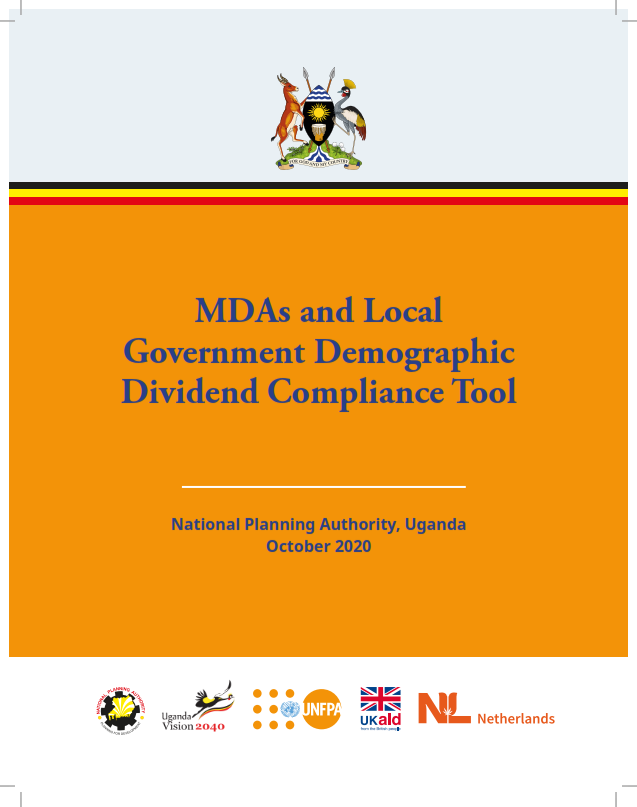
MDAs and Local Government Demographic Dividend Compliance Tool
The Demographic Dividend (DD) Compliance tool provides a great opportunity to track the country’s efforts towards achieving the potential DD through the investments the country will make at national and district levels, and for the various sectors that contribute to its realization of the DD. Investments in DD cannot be achieved unless well embedded in national planning and budgeting frameworks.
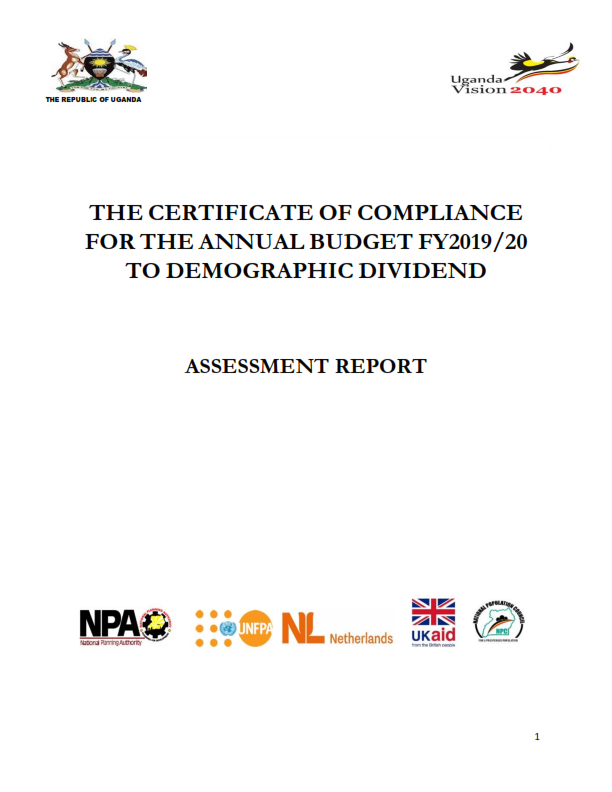
The Certificate of Compliance for the Annual Budget FY 2019/20 to Demographic Dividend (Assessment Report)
The issuance of the Certificate of Compliance (CoC) is a requirement under the Public Finance and Management Act (PFMA) 2015. The CoC is aimed at ensuring that the National Budget, comprising the sector, MDA and local government budgets are focused on implementation of the National Development Plans (NDPs). This requirement is expected to guarantee that planning and budgeting frameworks are aligned to achieving Vision 2040 through the NDPs.
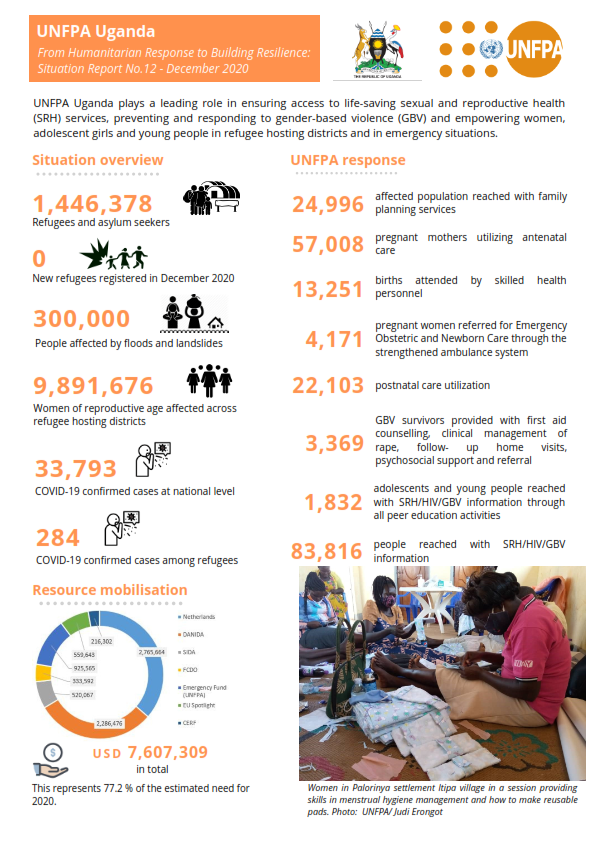
UNFPA Uganda Humanitarian Situation Report December 2020, Issue No. 12
UNFPA Uganda plays a leading role in ensuring access to life-saving sexual and reproductive health (SRH) services, preventing and responding to gender-based violence (GBV) and empowering women, adolescent girls and young people in refugee hosting districts and in emergency situations

United Nations Population Fund Country Programme document for Uganda
The country programme is aligned to the third Uganda National Development Plan 2020/21-2024/25, National Vision 2040, African Union Agenda 2063 and the United Nations Sustainable Development Cooperation Framework (UNSDCF) 2021-2025. The overall vision of the programme is to ensure universal access, for women and young people in Uganda to quality, integrated sexual and reproductive health and rights information and services which will support attainment of the three transformative results in UNFPA Strategic Plan 2018-2021, to end unmet need for family planning, end preventable maternal deaths, end gender-based violence.
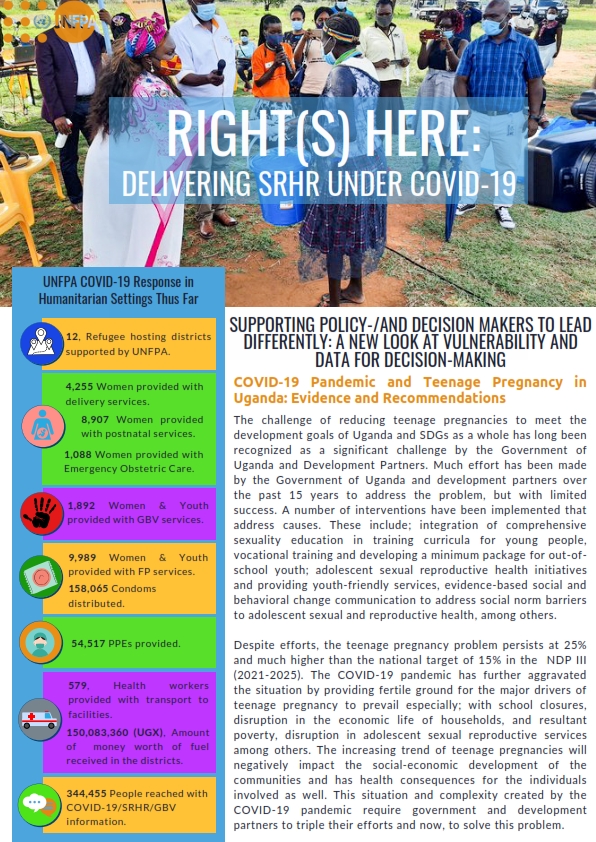
Right(s) Here: Delivering Sexual and Reproductive Health and Rights Under COVID-19. Issue 3
The challenge of reducing teenage pregnancies to meet the development goals of Uganda and SDGs as a whole has long been recognized as a significant challenge by the Government of Uganda and Development Partners. Despite efforts, the teenage pregnancy problem persists at 25% and much higher than the national target of 15% in the NDP I I I (2021- 2025). The COVI D- 19 pandemic has further aggravated the situation by providi ng fertile ground for the major drivers of teenage pregnancy to prevail especially with school closures, disruption in the economic life of households, and resultant poverty, disruption in adolescent sexual reproductive services among others. In this issue of 'Right(s) Here', read how UNFPA has supported districts expressing an increase in teenage pregnancies during COVID-19.
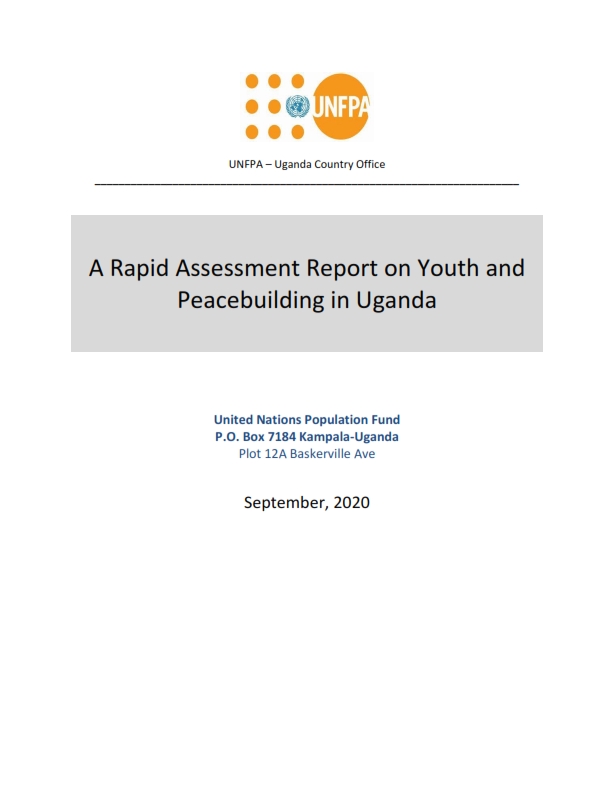
UNFPA findings: A recent assessment on Peacebuilding and Youth in Uganda
Uganda has a history of a vulnerable political landscape that peak up during election times and has resulted in violence, conflicts and criminal activities. The Central and Rwenzori regions of Uganda have been hotspots for violence with the youth at the center. Youth involvement in election violence in Uganda has been occasioned with tragic outcomes and continues to pose a threat to peace and security of the nation, in addition to undermining the long-term sustainability of the democratisation processes as well as risking the view of youth wrongfully becoming viewed troublemakers rather then potential actors for peacebuilding. This rapid assessment was conducted to generate evidence on improving youth inclusion in peacebuilding to support interventions in the UN Secretary Generals Peacebuilding Fund (PBF) project.
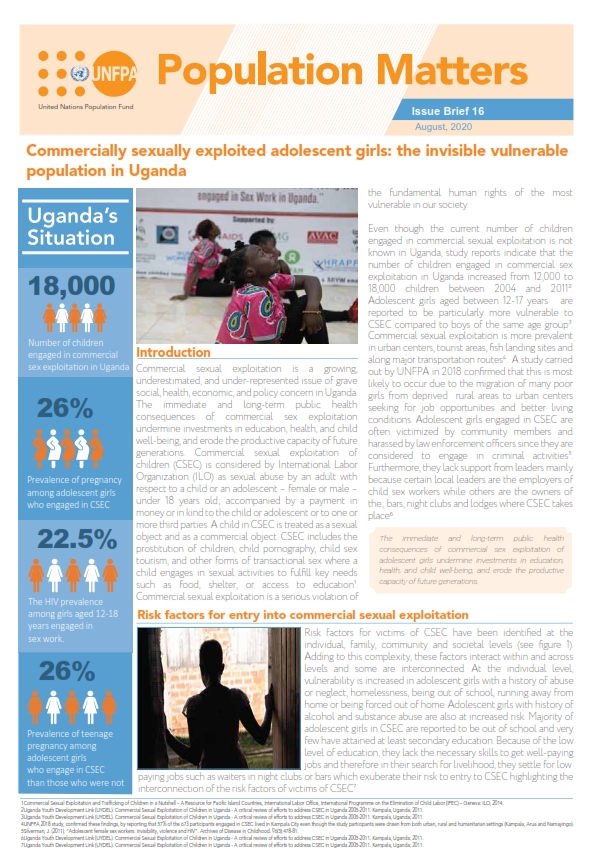
Commercially sexually exploited adolescent girls: the invisible vulnerable population in Uganda
Risk factors for entry into commercial sexual exploitation include risky healthy behaviors, inconsistent condom use, violence and limited access to health services including sexual and
reproductive health information and services. All stakeholders must find a way to hold the reality commercially sexually exploited adolescent girls in Uganda are highly vulnerable to adverse SRH/ HIV and GBV outcomes and their rights to health and safety must be protected.
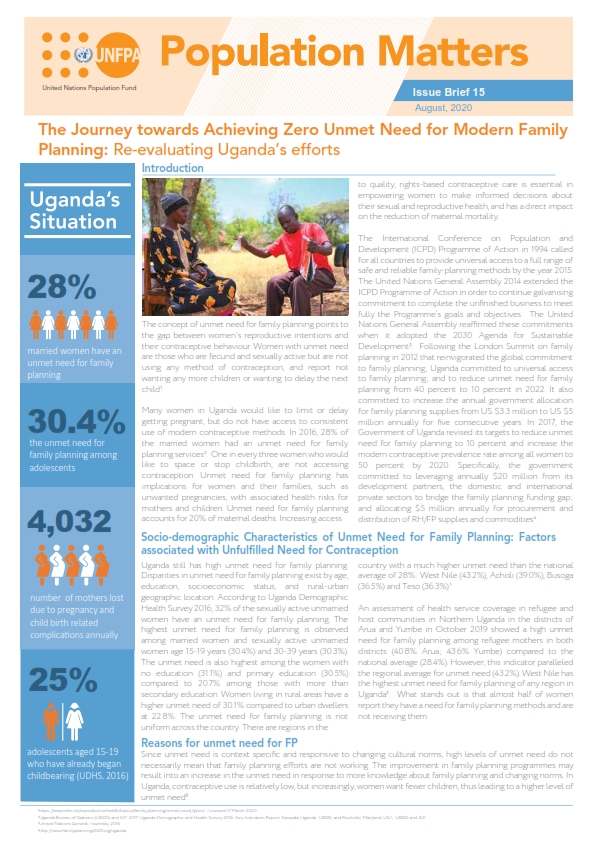
The Journey towards Achieving Zero Unmet Need for Modern Family Planning: Re-evaluating Uganda’s efforts
The International Conference on Population and Development (ICPD) Programme of Action in 1994 called for all countries to provide universal access to a full range of safe and reliable family-planning methods by the year 2015. The United Nations General Assembly 2014 extended the ICPD Programme of Action in order to continue galvanising commitment to complete the unfinished business to meet
fully the Programme’s goals and objectives. The United Nations General Assembly reaffirmed these commitments when it adopted the 2030 Agenda for Sustainable Development. How far are we in achieving these goals?
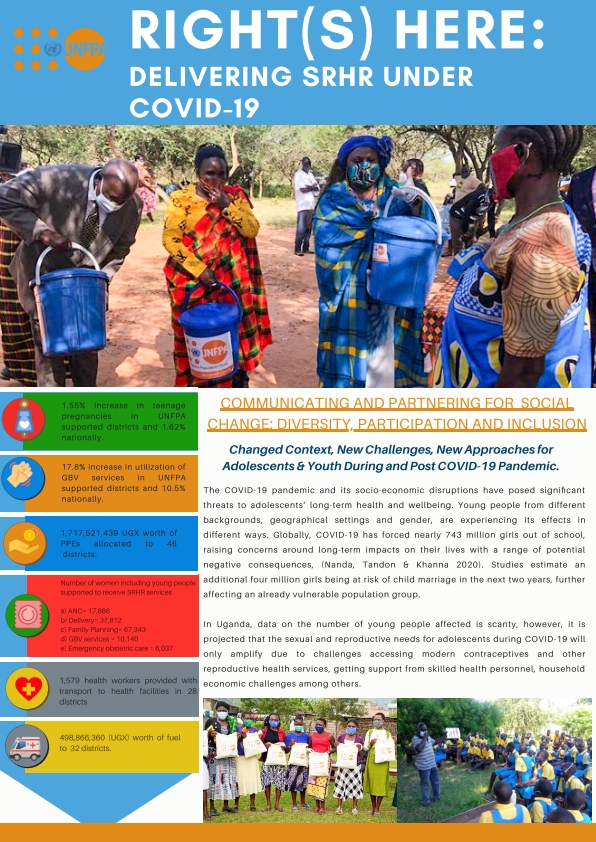
Amid COVID19, UNFPA continues to deliver rights-based services
Amid COVID-19, UNFPA-Uganda is continuing to deliver rights-based services in all corners of the country, regardless of location and situation - and in an increased number of fora and platforms. As we have been adjusting to the ‘’new normal” we have ensured the continuous delivery of SRHR/GBV services while trying to stay relevant and strategic at the policy level.
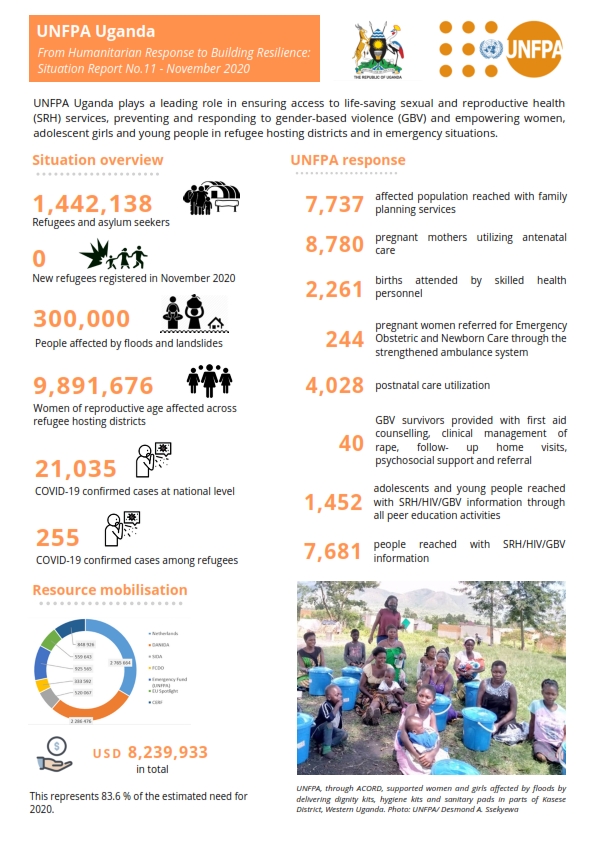
UNFPA Uganda Humanitarian Situation Report November 2020 Issue No. 11
In the month of Novemner 2020, with support from UNFPA and partners, a total of 7,737 affected populations were reached with family planning services in refugee hosting communities.